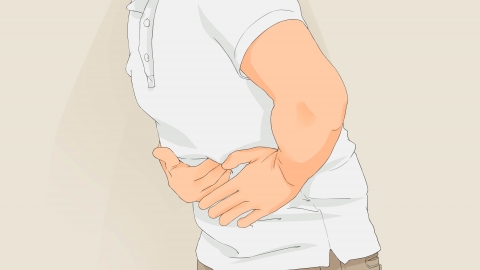Causes of left lower abdominal pain
Left lower abdominal pain may be caused by factors such as cold exposure to the abdomen, dietary irritation, colitis, irritable bowel syndrome (IBS), or left ureteral stones. Symptoms can be improved through abdominal warmth maintenance, dietary adjustments, and medication. If the pain is severe or accompanied by hematuria (blood in urine) or high fever, prompt medical attention is necessary.

1. Abdominal Cold Exposure: When the abdomen is exposed to a cold environment, cold air can stimulate the smooth muscles of the intestines, causing intestinal spasms and resulting in paroxysmal left lower abdominal pain. Pain usually eases with warming. It is recommended to maintain abdominal warmth, apply a warm compress or hot water bottle to the abdomen, and avoid consuming cold drinks, raw, or chilled foods.
2. Dietary Irritation: Consuming large amounts of spicy, fried, or spoiled food within a short time can irritate the intestinal mucosa and disrupt normal intestinal motility, leading to dull left lower abdominal pain, possibly accompanied by bloating or diarrhea. It is advisable to adjust the diet by choosing mild foods such as millet porridge or soft noodles, drinking plenty of warm water, and reducing the burden on the digestive tract.
3. Colitis: Intestinal inflammation caused by bacterial or viral infections or unhygienic eating habits can lead to persistent left lower abdominal pain due to irritation of the intestinal mucosa. This is often accompanied by diarrhea, mucus in stool, and sometimes low-grade fever. Under medical guidance, patients may take medications such as levofloxacin hydrochloride capsules, montmorillonite powder, or live compound bacillus subtilis granules to relieve symptoms.
4. Irritable Bowel Syndrome (IBS): Stress, anxiety, or irregular eating habits can cause intestinal dysfunction, resulting in dull or distending pain in the left lower abdomen. The pain is often related to bowel movements and may be associated with increased frequency of defecation or constipation. Under medical supervision, medications such as pinaverium bromide tablets, quadruple probiotic bifidobacterium tablets, or enteric-coated compound glutamine capsules may be used to improve symptoms.
5. Left Ureteral Stone: Mineral deposits in urine can form stones that block the left ureter, irritating the ureteral mucosa and causing severe colicky pain in the left lower abdomen. This is often accompanied by hematuria, nausea, and vomiting. As directed by a physician, medications such as anisodamine tablets, ibuprofen sustained-release capsules, or lithotripsy granules may be used to alleviate symptoms.
Daily care should include regular meals, avoiding spicy and greasy foods; maintaining emotional balance to reduce anxiety; engaging in moderate physical activity to promote intestinal motility and urine excretion; and undergoing regular health check-ups to detect abnormalities early.








